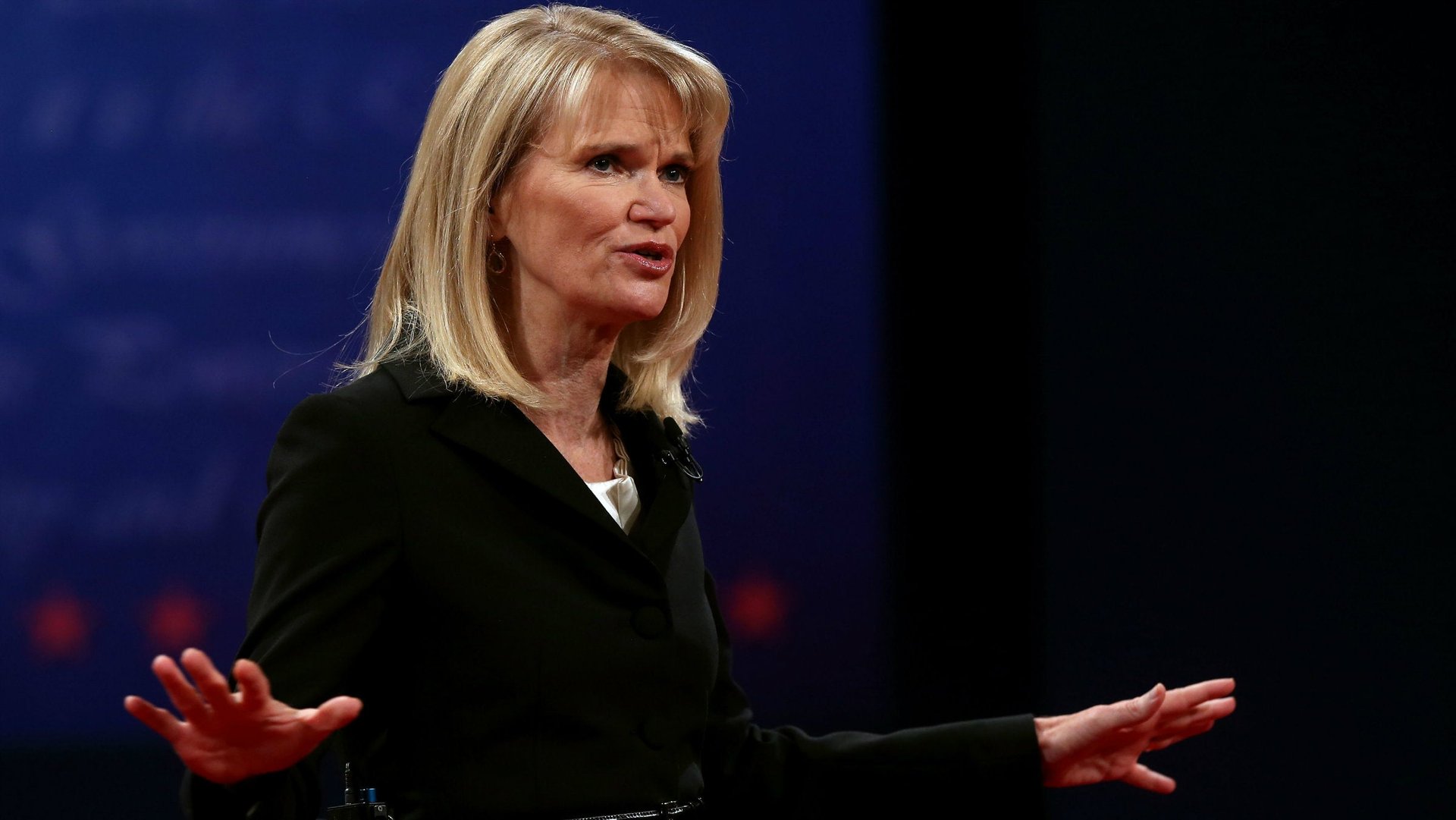Martha Raddatz just made the case for why being a woman matters
There was one reason that the US vice presidential debate was a success: moderator Martha Raddatz. The ABC News foreign correspondent drew overwhelming support, pushing for specifics, asking tough questions, prompting a lively debate.


There was one reason that the US vice presidential debate was a success: moderator Martha Raddatz. The ABC News foreign correspondent drew overwhelming support, pushing for specifics, asking tough questions, prompting a lively debate.
In their 50 years of existence, only three women have been the moderators of vice presidential debates, including Raddatz. Similarly, in presidential debates, only three women have acted as moderator. That’s unfortunate because she brought an incredible mix of qualities lacking in many of the male moderators: doggedness tempered with empathy, knowledge paired with humility, and the ability to be commanding and in control without being snide or authoritarian.
Raddatz was an unconventional choice, given TV show hosts not reporters are usually selected to moderate debates. But she proved that experience navigating thorny issues and asking tough questions was an asset. Raddatz has been to Iraq 21 times and Afghanistan and Pakistan a dozen times and was the first reporter to break the news on the death of Abu Musab al-Zarqawi, the leader of al Qaeda in Iraq, in 2006.
But she didn’t flaunt her experience; it was Vice President Joe Biden who actually referred to her experience in the Middle East.
When Biden or opponent Paul Ryan strayed from a question or stopped offering a substantive argument, Raddatz forcefully interjected, “Let’s move on.” She pressed for specifics and demanded follow-up, which incited lively back-and-forth and the energy absent in the first presidential debate moderated by journalist Jim Lehrer.
Her passion for the issues and concern not just as a journalist but as a voter and as a woman was apparent when she questioned the candidates about their stance on abortion. She pressed each man in her final question to make his case beyond the political rhetoric.
“And I want to talk to you very briefly before we go to closing statements about your own personal character. If you are elected, what could you both give to this country as a man, as a human being, that no one else could?”
While their answers might have been lacking, we’ve rarely seen men forcing such introspection of each other.